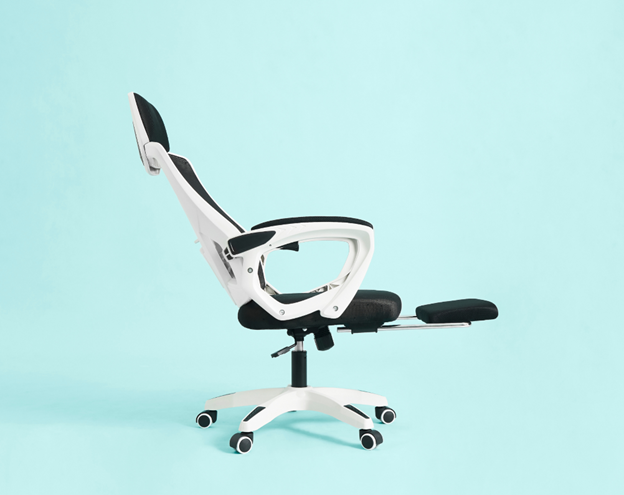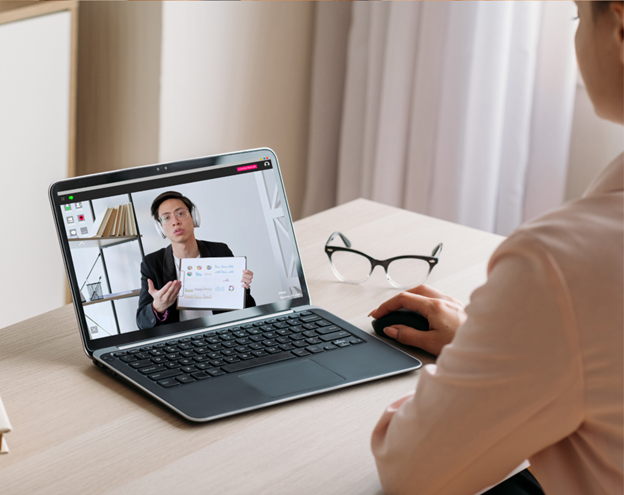Access to Work Grant for Self-Employed People: How to Apply & Get Support
Running your own business can be a lifeline when traditional jobs don't fit.
For many neurodivergent, disabled, or chronically ill people, self-employment isn’t just about being your own boss - it’s about building a way of working that protects your health, your time, and your energy.
However, flexibility doesn't remove the extra costs that come with access needs: the specialist software that keeps you productive, the ergonomic chair that means you can work without pain, or the travel support that makes client meetings possible.
All of those can add up quickly - and when you're self-employed, they come straight out of your pocket.
That’s why schemes like the Access to Work grant for self-employed people - including freelancers, disabled entrepreneurs, and small business owners - can be so important in making your work sustainable.
Access to Work Scheme: What It Is and How It Works
Access to Work is a government-funded scheme that provides practical support for people with a disability, health condition, or access need. It’s not a loan, and it’s not means-tested - it’s a grant designed to remove barriers so you can work effectively and sustainably, whether you’re employed or running your own business.
The scheme can fund adjustments such as specialist equipment, assistive technology, transport costs, job coaches, or support workers. If you’re self-employed, this could include anything from adapted office furniture to ongoing practical help. The range of possible support is broader than most people realise - but we’ll cover that in detail later.
Is Access to Work Available for Self-Employed People?
Yes. Self-employed people, including sole traders, freelancers, and small business owners, can apply if they meet the Access to Work self-employment criteria.
This usually means you:
Operate your business yourself, or in partnership
Have a Unique Tax Reference (UTR) number
Can provide evidence such as accounts, a business plan, or other proof of trading
Most applicants will need to show an annual turnover of at least £6,500, although you can still apply if you earn less in some circumstances.
You’ll also need to meet the core Access to Work eligibility criteria:
Be aged 16 or over
Be doing paid work (or about to start) in the UK
Show that your condition makes certain aspects of your work harder without support
What Can the Access to Work Grant Pay For?
Examples of what Access to Work funding can pay for include:
Specialist equipment and assistive software - e.g. speech-to-text tools or screen readers
Mental health support to help manage work-related stress or anxiety
Adaptations to make existing equipment easier to use
Support workers or job coaches to assist with tasks you can’t complete alone
Accessible transport if public transport isn’t an option
Disability awareness training for colleagues or team members
Specialist training that helps you work more effectively and independently
Support at job interviews, such as travel costs or a sign language interpreter
If you’re self-employed, examples might include funding for a height-adjustable desk, adapted office furniture, taxi fares to client meetings, or someone to take notes during calls if concentration or memory is a barrier. You might also receive Access to Work support for adaptations to your existing equipment, specialist training, or regular mental health support sessions.
You can find more examples of what it can cover - and how to ask for accommodations in this blog article about assessments.
How to Apply for the Access to Work Grant if You’re Self-Employed, Freelance or Run a Small Business
Applying is straightforward, though the process can take time, so it’s worth starting early.
Here’s how to do it:
Gather proof that you’re self-employed - HMRC registration as a sole trader, recent invoices, or business bank statements.
Apply online through the Access to Work page on the gov.uk website, or by phone. The form’s text boxes are short, so you only need to give an outline - you can even write “I’ll give these details later” - and provide full information during your assessment.
Take part in an assessment - this is a conversation with an assessor who will discuss your job and recommend support tailored to you.
Once approved, arrange the support and keep any receipts or records the scheme asks for.
Tip: The Access to Work scheme will only fund costs from the date you apply, so applying early means you won’t miss out on support you could be entitled to. They will not reimburse anything bought before the application date.
Common Challenges and Tips for Self-Employed Applicants
Applying for Access to Work can feel like a big task - especially when you’re self-employed, running your own business, or freelancing while also managing health or access needs.
For many disabled entrepreneurs, small business owners, and freelancers, the Access to Work grant is a vital source of support – but the application process can be slow and admin-heavy.
Here are some tips to make your Access to Work application smoother:
Apply early. Applications can take weeks (sometimes months) to process, so don’t wait if you know you’ll need support.
Prove your business quickly. Keep trading evidence - such as invoices, contracts, or bank statements - organised so you can send them straight away.
Request adjustments to the process. If forms or assessments feel overwhelming – especially if you’re neurodivergent or your health fluctuates – you have the right to ask for communication in a format that works for you, or to have someone join calls to help process information.
Need Help Applying For Access To Work?
Hi, I'm Anita.
Access to Work can be frustrating and confusing, but you don't have to figure it out alone. I offer neurodivergent-affirming, human-first Access to Work support, whether you're applying for the first time, renewing your application, or just feeling completely overwhelmed by the process.
Like you, I considered self-employment for years before I took the plunge - and honestly, Access to Work has been a game changer for me as a self-employed person.
If you’d like a bit more hands-on support, I can guide you from application to grant setup — helping you avoid common pitfalls and secure the right support without all the overwhelm. Book a meeting to get started.
Next Steps
Access to Work can make a big difference to how sustainable and manageable your business feels. It can cover the costs that might otherwise hold you back, so you can focus on the work you do best rather than worrying about affording the adjustments you need.
It’s one of several types of self employed support available in the UK - but unlike many other self employed grants or small business funding options, it’s not a loan and doesn’t need to be repaid. This means you can focus on the work you do best rather than worrying about covering the costs of adjustments, equipment, or other essential help for your business.
If you think you might be eligible, apply sooner rather than later. Even a small amount of self employed funding can remove a barrier and free up your energy for growth. If you’re also looking for other support for entrepreneurs or help for small business owners, combining Access to Work with other funding streams can create a more sustainable foundation for your business in the long term.
FAQs About Access to Work for Self-Employed People
Here are answers to the most common questions about applying for Access to Work as a self-employed person:
How much is the Access to Work grant?
There’s no set minimum, but there is a maximum. For new applications approved between 1 April 2024 and 31 March 2025, the maximum annual amount is £66,000. The actual amount depends on what support you need and the costs involved - some things are fully funded, while others may be part-funded.
Can I apply before my business makes a profit?
Yes. You can apply if you’re in paid work, about to start, or have a confirmed offer. You’ll need to give evidence, such as a signed contract, booking confirmation, or recent invoices. You don’t need to be profitable to qualify - many start-up businesses and entrepreneurs get funding in their early stages.
What if I already bought the equipment I need?
Access to Work will only fund support from the date you apply. They won’t usually reimburse costs for anything you bought before your application date. Apply early, even if you’re still working out the details, so you don’t miss out on funding for self-employed people you’re entitled to.
Can I get a grant if I go self-employed?
Yes. If you meet the eligibility criteria, you can apply as a sole trader, freelancer, or business owner. You’ll need to prove you’re actively trading and meet the Access to Work definition of self-employment.
Who pays for Access to Work?
The Department for Work and Pensions (DWP) funds Access to Work. It’s not a loan and doesn’t come out of your taxes or business income - it’s a separate government grant that can help with the cost of running a business with a disability or health condition.




